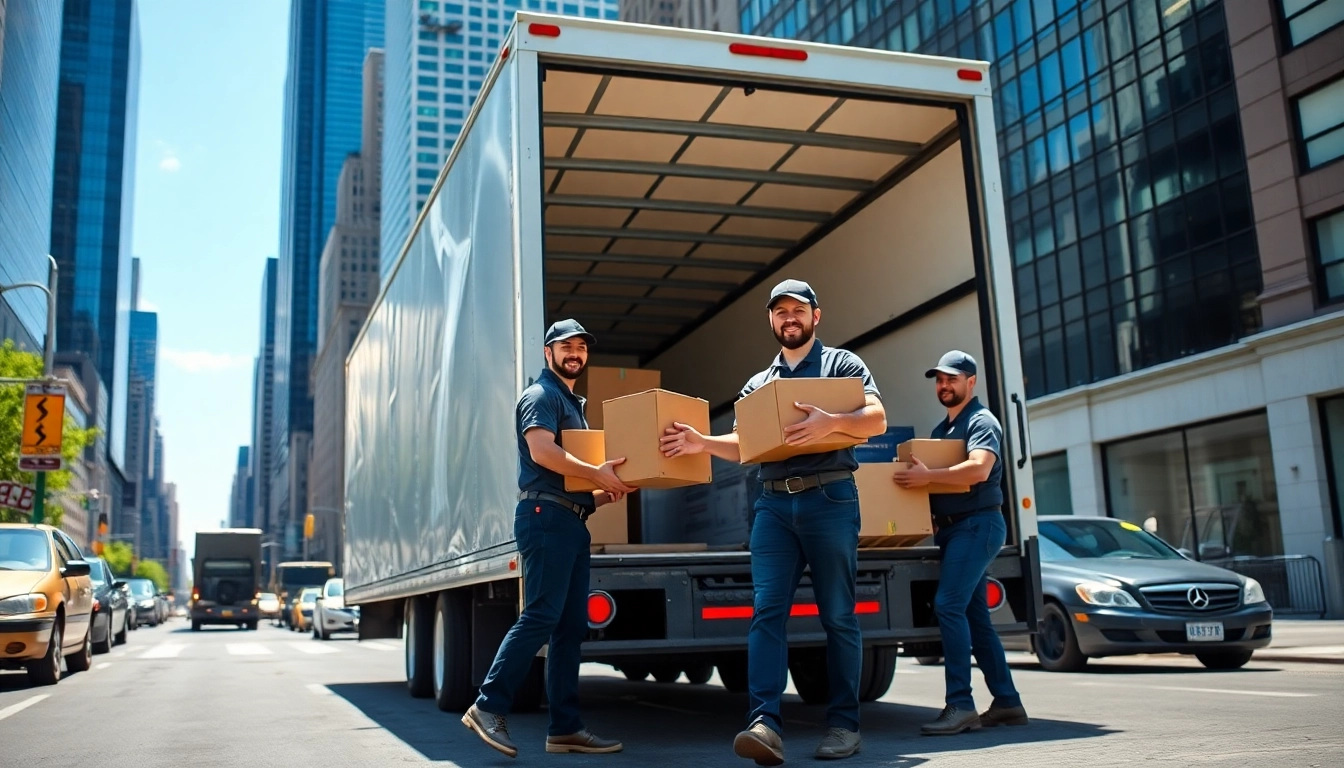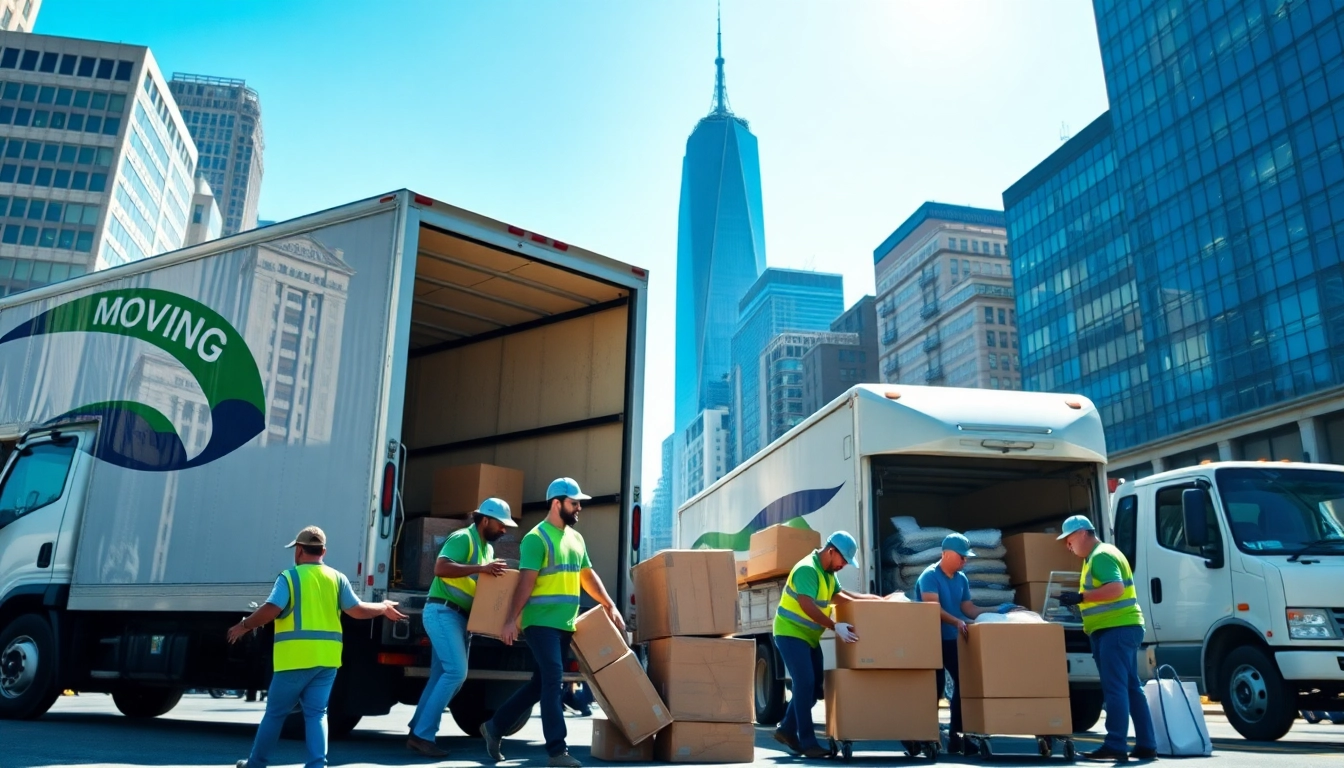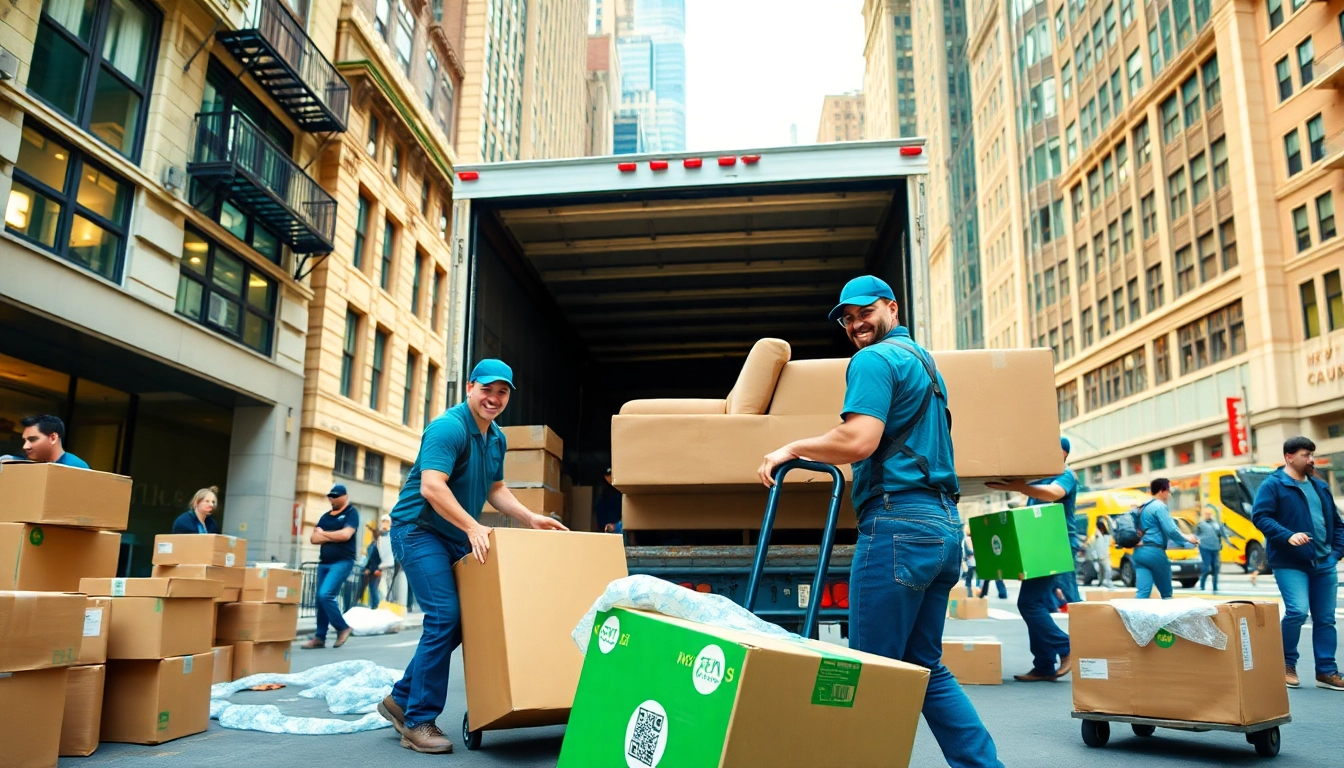Understanding Your Moving Needs
Moving to a new home or office can be an overwhelming experience, especially in a bustling city like New York City. With so many moving services available, understanding your specific moving needs is the first step toward a smooth transition. By identifying your requirements early in the process, you can ensure that you select movers that are equipped to meet them. This guide will dive into key aspects of moving, including assessing your volume, choosing between local and long-distance movers, and establishing a realistic budget.
Assessing Your Moving Volume
Start by determining the amount of belongings you need to move. This assessment will help you gauge the size and type of moving service you’ll need. If you’re moving a small studio apartment, for example, a smaller truck and perhaps just a couple of movers might suffice. However, if you’re relocating a larger home with heavy furniture, appliances, and multiple bedrooms, you’ll need a more comprehensive service with more manpower.
To effectively assess your moving volume, consider the following:
- Inventory your belongings: Go room by room and list the items you will be taking with you, noting any large or heavy items.
- Evaluate what you can leave behind: This is a great opportunity to declutter your space. Consider donating or selling items you no longer need or use.
- Choose what to move: Once you have an inventory, it will be easier to decide what items will require special handling or packing.
Deciding on Local vs. Long-Distance Movers
Understand the distinction between local and long-distance moves, as each requires different planning, logistics, and types of moving services. A local move is defined as relocating within a certain distance, typically 50 miles, while a long-distance move spans a more significant distance, often crossing state lines.
Here are some considerations for each type:
- Local Moves: Usually less expensive and less complicated, local moves may allow you to hire movers for just a few hours. Often, local movers are knowledgeable about the streets and regulations of the city.
- Long-Distance Moves: These require more strategic planning; you will likely need to secure a moving company well in advance. You’ll also need to consider the logistics of transporting belongings for an extended time and across different states, which may impact your rates.
Setting a Moving Budget
Creating a moving budget is essential to avoid overspending. It’s easy to get caught up in the excitement of a move and lose track of costs. Specifically, your budget should consider:
- Moving service fees: Include estimates based on the volume of items and distance of the move.
- Supplies: Don’t forget to factor in the cost of packing materials such as boxes, tape, bubble wrap, and other necessary supplies.
- Additional services: If you need packing, storage, or specialized handling, these services can add to your overall budget.
Keeping track of these costs will help ensure a successful and within-budget move.
Key Qualities of the Best Movers NYC
When searching for the Best movers nyc, it’s crucial to evaluate the qualities that define a reliable and effective moving service. The movers you choose can make a significant difference in your overall moving experience. Here are the essential qualities to look for:
Reliability and Trustworthiness
Reliability is one of the most significant factors in choosing a moving company. You want a partner you can trust to handle your belongings carefully and deliver them safely to your new location. Look for companies with positive reviews and testimonials from past clients that highlight their dependability and customer service.
Some ways to assess reliability include:
- Checking Reviews: Utilize online platforms to read reviews from real customers. Focus on patterns or repeat feedback regarding reliability and punctuality.
- Asking Questions: Don’t hesitate to ask a potential mover about their policies regarding damage or loss. Understanding their approach can help you ascertain their reliability.
Professionalism and Experience
Professionalism goes hand in hand with experience. An experienced team will have likely encountered a variety of moving situations and developed effective strategies to address them. They should present themselves in a professional manner, showcasing expertise and courtesy when handling your belongings.
To evaluate their professionalism, consider:
- Certifications: Check if the moving company has necessary certifications or affiliations with industry associations, as these often indicate a level of professionalism.
- Employee Training: Ask about their training programs for staff to ensure they are knowledgeable about packing, loading, and transporting goods safely.
Transparent Pricing Structure
A clear pricing structure is essential to avoid nasty surprises on moving day. The best moving companies provide detailed estimates that outline all potential charges, ensuring transparency from the outset. Look for movers who offer free, no-obligation quotes based on an onsite assessment of your belongings.
Questions to ask regarding pricing include:
- What’s Included: Clarify what services are included in the quoted price and any additional fees that might be incurred.
- Deposit Requirements: Understand the company’s policy on deposits or upfront payments to avoid any unexpected fees.
Researching and Comparing Moving Services
Choosing the right moving service requires thorough research and comparison. It’s essential to not only find a service that meets your needs but also one that stands out for providing high-quality service. Here are some methods you can use to effectively research and compare different movers:
Reading Customer Reviews
Customer reviews can provide valuable insights into a mover’s reputation and performance. Pay attention to both positive and negative comments to gauge the overall customer satisfaction level. Look for detailed accounts of customers’ experiences, as these often highlight specific strengths or weaknesses of a service.
Consider using multiple review platforms to get a well-rounded view. The more reviews you can find, the better you can assess a company’s reputation.
Getting Recommendations from Friends and Family
Recommendations from friends and family who have experienced a mover’s services firsthand can be incredibly valuable. They can provide feedback based on their experiences, which may include tips on what to watch out for and what to expect.
Additionally, be sure to ask specific questions regarding the service they received, timeliness, professionalism, and any damages incurred during the move.
Utilizing Online Resources and Tools
Take advantage of online resources and tools to compare moving companies. Websites dedicated to moving services often provide comparison tools that allow you to see multiple companies side by side.
Look for comprehensive guides that help evaluate and rank movers, as well as industry news that can provide insight into current market conditions. You can also find tools that allow you to create moving checklists and timelines to keep the process organized.
Preparing for Your Move
Once you’ve selected your movers, it’s time to prepare for the move. This stage is critical for minimizing stress and ensuring a seamless transition. Adequate preparation will benefit both you and your moving crew. Below are some essential steps to take as you prepare for your relocation:
Creating a Timeline
A moving timeline is crucial for staying organized. Develop a step-by-step plan leading up to your moving day, ensuring that all necessary tasks are completed in a timely manner. Here are key components to include in your timeline:
- 8 weeks before your move: Begin decluttering and purchasing packing supplies.
- 4-6 weeks before your move: Finalize your moving service, create a detailed inventory, and start packing non-essential items.
- 2 weeks before your move: Confirm details with your movers, finalize your packing, and prepare your new home.
- 1 week before your move: Pack essential items separately and create a box labeled “first-day essentials” for when you arrive at your new home.
Packing Strategies for Efficiency
Packing effectively can save you time and money. Implement these strategies to make your packing process as efficient as possible:
- Room by room packing: Close off one room at a time to keep everything organized. Label boxes by room and content.
- Protect fragile items: Use bubble wrap or packing paper for fragile items, and make sure to fill any empty space in boxes to prevent shifting.
- Utilize wardrobe boxes: For clothing, wardrobe boxes allow you to move clothes directly on hangers without needing to fold them.
Communicating with Your Chosen Movers
Good communication with your movers is essential for a successful relocation. Ensure that you discuss any specific requirements, concerns, or questions you may have ahead of your moving day.
Here are key points to communicate:
- Access to properties: Discuss parking restrictions, building access requirements, and elevator reservations if necessary.
- Item handling: Be upfront about any items that require special handling, such as valuable art pieces, pianos, or large appliances.
- Final details: Confirm details such as timing, payment arrangements, and point-of-contact information on moving day.
Post-Move Considerations
After the move is complete, there are a few critical steps to take to ensure all is settled in your new space and that you have a complete understanding of the service you received. Here are some considerations for after your move:
Settling into Your New Home
Transitioning into a new home can be just as overwhelming as the moving process itself. Start by unpacking essential items and finding a comfortable setup in your new space. Create a plan to tackle each room methodically, making your new house feel like home step by step.
Consider engaging in these actions to help settle in:
- Establish routines: Create familiar daily routines to help ground you in your new environment.
- Explore your new neighborhood: Take time to find local grocery stores, parks, and amenities that can enhance your living experience.
Assessing the Performance of Your Movers
Evaluate the service you received to determine if your chosen movers met your expectations. Consider aspects such as punctuality, professionalism, and care for your belongings.
Reflect on the following:
- Service Levels: Were they as professional as promised? Did they handle your belongings with care?
- Communication: Did the movers communicate effectively, keeping you informed throughout the process?
Providing Feedback and Reviews
Your feedback can help others make informed decisions about their moving services. Consider writing a review based on your experience and how the company handled your relocation.
When leaving feedback, focus on the specific aspects of your move that influenced your overall satisfaction. This information is beneficial for both potential customers and the movers looking to improve their services.
By following the steps and considerations outlined in this guide, you can ensure a successful and stress-free moving experience. Finding the right movers allows you to focus on settling into your new surroundings while feeling confident about your possessions’ safety and security.















Leave a Reply